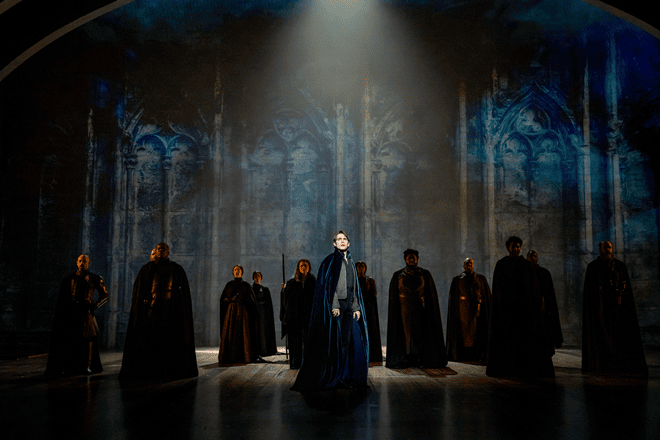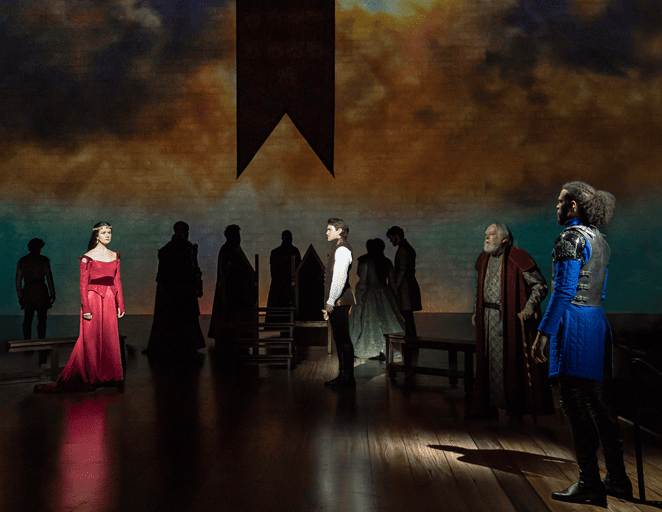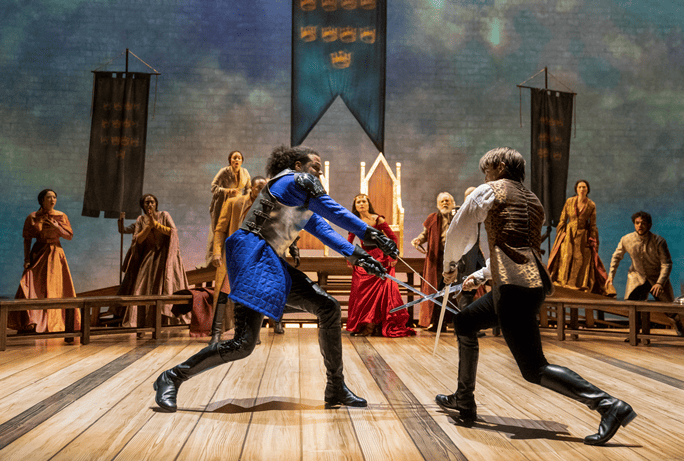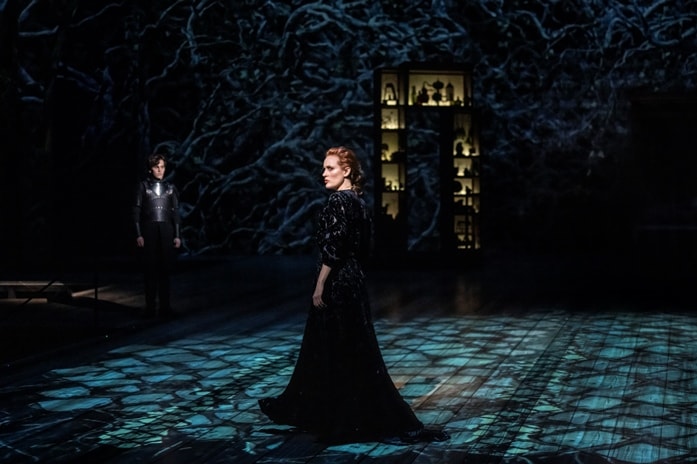An iconic figure since the Middle Ages, King Arthur still remains the subject of debate as to whether he was a fictional character or an actual historical person in post-Roman Britain of the 5th to 6th centuries, who became the stuff of legends in the Middle Ages. His story gained popularity with Geoffrey of Monmouth’s Historia Regum Britanniae – a chronicle of the lives of the British kings written ca. 1135-39, which contains the familiar names of Arthur’s father Uther Pendragon, wife Guenevere, magician Merlyn, nemesis Mordred, and sword Excalibur. Later in the 12th century (ca. 1170-90), the French poet Chrétien de Troyes expanded the story in five Arthurian romances, adding Lancelot and more to his imaginative telling.

Interest in the tale continued to grow into the 20th century, with the publication of T.H. White’s 1958 collection The Once and Future King, loosely based on Sir Thomas Malory’s Le Morte d’Arthur of 1485, and serving as the inspiration for Lerner and Loewe’s 1960 musical Camelot, now playing a reimagined revival at Lincoln Center’s Vivian Beaumont Theater, with a new book by Oscar and Emmy winner Aaron Sorkin that reworks Alan Jay Lerner’s original and removes the magic, while leaving Frederick Loewe’s music and Lerner’s lyrics intact.
Though Sorkin’s rewrite, directed by Bartlett Sher, follows the basic narrative and plot points, it’s an anachronistic mash-up of a medievalizing design (a towering set by Michael Yeargan, transporting projections by 59 Productions and lighting by Lap Chi Chu, and period-inspired costumes by Jennifer Moeller and hair and wigs by Cookie Jordan) with a more modern attitude that replaces the mythical mysteries with scientific explanations (e.g., Merlyn is not a wizard but an advisor who is soon replaced by the bumbling Pellinore; Morgan Le Fey is not a sorceress but a scientist; Lancelot, who is selected by Guenevere to challenge the king in a sword fighting tournament, did not bring Arthur back from the dead but merely awoke him from having been knocked unconscious; and Arthur was able to remove the sword from the stone because the others who went before him had loosened it), which doesn’t gel.

It also incorporates a more sarcastically jokey and insulting personality for Guenevere, played by Phillipa Soo (and quickly seen in her response to Arthur’s praise of “Camelot” in the happy and bouncy titular song as being “stupid), in a male writer’s effort to make her seem more modern and feminist (though she rails at the king when he refers to her as his “business partner” – not exactly a medieval term). Along with that is Sorkin’s signature heavy-handed socio-political agenda that makes the quest for an enchanting utopia of justice, equality, and “might for right” (the guiding motto of the Knights of the Round Table – though there is no round table in this production’s scenic design), which is destined to fail because of human behavior, much less visionary and more overtly about the reality of today (a universal message that we, like the contentious Guenevere, would already recognize as “a metaphor”).
That moral is likewise impeded by the characterization of Arthur, portrayed by Andrew Burnap, as more childish and ineffectual than idealistic, in contrast to the commanding arrogance, dedication to performance, and devotion to God, King, and principles of Jordan Donica’s egotistical Lancelot (devotion that is challenged by his attraction to Guenevere). The story’s central love triangle also feels less than credible because of the lack of chemistry between Guenevere and the two men (though she sexualizes “The Lusty Month of May” with her flirtatious attitude while dancing around the Maypole, in choreography by Byron Easley).

Where this version does succeed is in the exciting tournament scene of sword fighting (exhilarating fight direction by B.H. Barry), executed to perfection by Donica and Burnap, and in Lerner and Loewe’s soaring music (original orchestrations by Robert Russell Bennett and Philip J. Lang, and original dance and choral arrangements by Trude Rittmann). The vocal highlights include Soo’s beautiful soprano on “The Simple Joys of Maidenhood” and “Before I Gaze at You Again” and Donica’s rich and resonant baritone on the conceited “C’Est Moi,” the anguished “I Loved You Once in Silence” (traditionally sung by Guenevere), and the show’s blockbuster hit “If Ever I Should Leave You,” accompanied by a full 30-piece orchestra (conducted by Kimberly Grigsby).

Other notable performances in the featured cast are delivered by Dakin Matthews as both the wise Merlyn and the laughably muddled Pellinore; Taylor Trensch as Arthur’s conniving illegitimate son Mordred, who plots to take over his father’s throne; Marilee Talkington as the boy’s mother Morgan Le Fey – no longer the magical beings they’ve always been in this temporally inconsistent production – and Anthony Michael Lopez, Fergie Philippe, and Danny Wolohan as Sirs Dinadan, Sagramore, and Lionel – fellow Knights who are not pleased with the French Lancelot and are easily swayed by Mordred, joining him in the defiant song “Fie on Goodness.”
LCT’s largely unsatisfying revival is an attempt to make the classic musical realistic and timely but, in so doing, it loses much of the story’s imagination and appeal. Fortunately, the songs retain the wonder of Lerner and Loewe and the sword fights, costumes, and sets “Don’t let it be forgot, that once there was a spot, for one brief and shining moment that was known as Camelot.”
Running Time: Approximately two hours and 50 minutes, including an intermission.
Camelot plays through Sunday, July 23, 2023, at the Vivian Beaumont Theater at Lincoln Center Theater, 150 West 65th Street, NYC. For tickets (priced at $48-298, plus fees), go online. Masks are no longer required but are encouraged.





